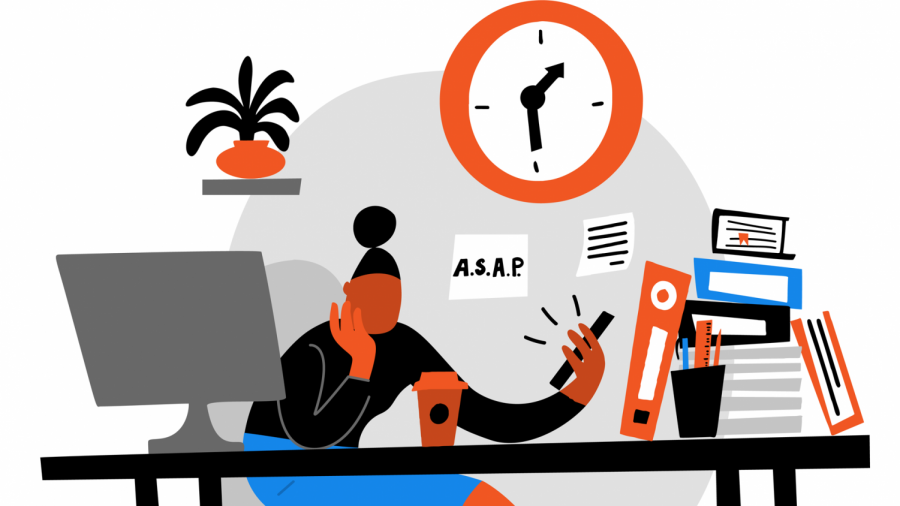Procrastination has negative effect on mental health
October 19, 2020
Procrastination by definition means, “the action of delaying or postponing something” (Oxford Language). This action is affecting 86% of our high school students and 88% of college students. This number rises significantly when we look at college males; a whopping 92% say they procrastinate on assignments (magoosh).
This exploit can have an extremely negative effect on student’s mental health. Because of their action to put off homework and assignments, students who do so can find themselves with more work and little to no time to complete said work. This usually leads to poor grades and test scores. Not only that, but students who procrastinate usually experience higher levels of stress, anxiety, guilt, and frustration. In some extreme cases this action can lead to self-esteem issues and even depression (oxfordlearning).
This serious matter has many simple solutions that can limit or even stop procrastination completely within students. One way to do so is getting organized. Organization is a great way to lay out your assignments, and your surroundings so you have a full understanding of your deadlines, amount of work needed for immediate completion, and to feel comfortable in your environment so you minimize distractions.
Another way is to set deadlines for yourself before the assignments is due. This gives you time to complete the assignment before the due date, so you are not scrambling for completion at the last second.
Finally, another fantastic way to help complete work on time is by using incentives. Everyone loves being rewarded. Why not reward yourself for completing your tasks or studying for a test? It’s simple. Determine a reward for an amount of work completed. Say, “if I complete my physics homework, then I can watch my favorite movie.” This is a great way to pay attention and complete all your assignments. Also, it’s a great way to boost your mood and all around well-being!


